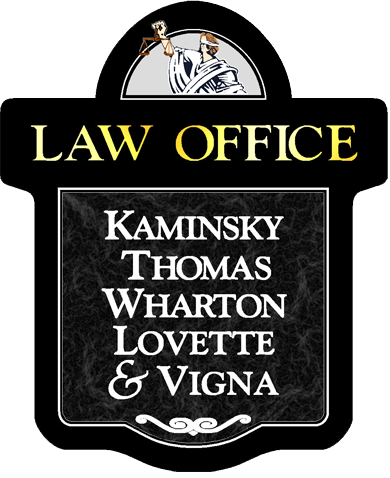Elder Law

Asset Preservation
Asset protection planning involves figuring out and applying a lawful series of techniques that protect your assets from claims of future creditors. In cases where significant sums are involved, asset protection planning often includes setting up a series of trusts, partnerships and/or limited liability companies to hold legal title to your assets.
Many of the traditional forms of estate planning can also be used effectively as asset protection techniques. Gifts of property not intended to defraud creditors remove the assets from your estate. Retirement plans have a considerable amount of asset protection built in due to federal and state law. Spendthrift provisions in life insurance contracts and certain trusts can prevent creditor attack while the assets are outside the hands of the beneficiary. Conducting business as a corporation, using limited liability companies, limited partnerships and other business entities also afford considerable protection.
However, when you employ an asset protection technique, you must be careful not to trigger prohibitions against fraudulent transfers. If a court determines that a transfer was fraudulent, it could be undone, and you could be charged with a crime and face fines, restitution orders, probation or incarceration.
You must be sure that the techniques you use are “legal” asset protection planning and NOT actions to defraud creditors, which are criminal. For that reason it is essential to have an attorney guide you through the process. If you are considering attempting to protect your assets through any of these techniques, contact Kaminsky, Thomas, Wharton, Lovette & Vigna to assist you.
Asset Preservation
Medicaid is a federal program that provides payment for medical care for persons unable to afford to pay. Medicaid covers physicians’ services, hospital care, medications, supplies and other necessary services once a person has been made eligible for the program. It also pays for the expenses of long-term care in a nursing home or an adult care home.
It is important to distinguish between Medicare and Medicaid. Medicare is an insurance program providing payment for medical needs for persons 65 and over and for certain disabled persons. All persons 65 and over, regardless of financial resources or income, are eligible for Medicare. Medicare, however, provides only limited coverage in the case of an illness, excluding payment for prescription medications and not covering any of the cost of long-term custodial care in nursing homes or adult care homes. These non-covered items must be paid privately by Medicare insureds, unless coverage is provided under some type of supplemental policy the person has purchased independently. Medicaid, on the other hand, pays for all medical needs for those of any age who have been determined to be eligible. In fact, a person with limited income and resources who has Medicare coverage may also qualify for Medicaid benefits.
Medicaid is most often of importance to middle-income Americans because the cost of long-term care for such illnesses as Alzheimer’s Disease or paralysis caused by a stroke is not covered by Medicare. Most people who need such care for extended periods will eventually deplete their assets and be unable to pay the costs of their care. At such time Medicaid is available to pay the difference between their income and the actual costs of care, including not only room and board, but also including physicians’ care, medications, hospital care and all other reasonable necessary medical expenses. Medicaid covers the costs of such care in nursing homes, adult care homes, hospices, and, in appropriate cases, in the patient’s own home. If faced with the possibility of such long-term care expenses, there are certain rules that you should be aware of:
- In determining eligibility for Medicaid payment for long-term care expenses, the eligibility team will review the individual’s actual need for care, the person’s available resources (including life insurance and retirement plans) and income received from any source.
- In determining the eligibility for one spouse, the resources and income for both spouses is considered, regardless of community property laws or the nature of the ownership of the asset.
- Any assets transferred within 60 months prior to application will be considered available if they were transferred for less than their value whether individual or in trust.
- Assets of married couples, however, receive special treatment so that the spouse who remains living at home will not be unduly impoverished. Such a non-institutionalized spouse is permitted to keep one-half of all of the available assets (up to a federally-established maximum) and is allowed to keep a substantial portion of the income of the couple in order to provide for support expenses at home.
- In addition, there are certain resources that are considered non-countable for eligibility purposes; these include the family residence, household contents, a vehicle, a prepaid burial fund and other necessary items.
- It is important to be aware of the specific eligibility provisions and exemptions so that assets will not be wasted before applying for Medicaid.
- Finally, it is important to know that there are appeals processes built into the Medicaid system. If you are unhappy with eligibility determinations, care decisions or placements made under Medicaid, there is a process for an administrative review, an administrative hearing and even court proceedings to enforce your rights.
Medicaid is one of the most complex laws of the United States. It is important to see an attorney as soon as possible to enable the greatest benefit from under the law. The attorneys at Kaminsky, Thomas, Wharton, Lovette & Vigna will be able to assist you in this endeavor.
